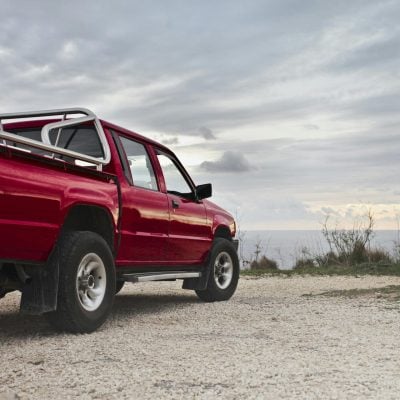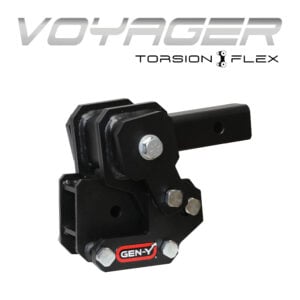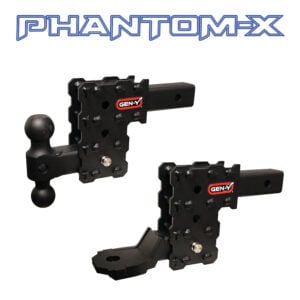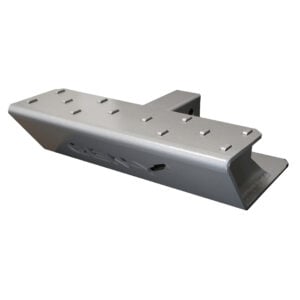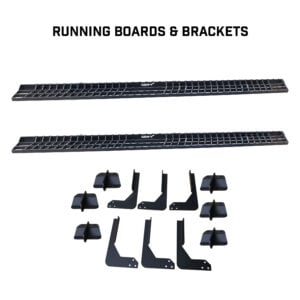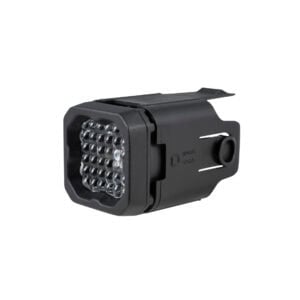A hitch and a hitch receiver are two parts of a towing system, but they’re not the same thing. Knowing the difference is imperative if you want to tow your vehicle safely. This article will explain how each part works and why knowing the difference matters.
Is a receiver the same as a hitch?
A hitch is essential for towing, serving as the bridge between your vehicle and whatever you’re pulling, whether a trailer, boat, or utility carrier. It consists of several parts, including the hitch receiver, ball mount, hitch ball, and wiring harnesses, each playing a crucial role in securing and connecting the load to your vehicle. Hitches come in various classes to match towing needs, ranging from lightweight options for small trailers and bikes to heavy-duty versions for large trailers and boats. The right hitch not only ensures a secure connection but also helps maintain stability and control while towing, making it a fundamental piece of equipment for the safe and efficient transportation of goods.
On the other hand, a hitch receiver is a specific part of the hitch system, acting as the interface where attachments connect to your vehicle. It’s a square or rectangular tube, typically made of steel, mounted directly onto the vehicle’s frame. Receivers vary in size according to the hitch class, accommodating different types of ball mounts, bike racks, cargo carriers, and other towing accessories. This component’s design allows quick and easy changes between towing setups, offering flexibility to meet various hauling requirements. The receiver is central to the hitch’s versatility, enabling multiple attachments for different purposes, all while maintaining the integrity and safety of the towing system.
What kind of hitch do you need?
When picking the right hitch for your towing needs, it’s essential to consider the type of connection that will best suit your vehicle and the load you’re carrying. The most common types include the ball mount hitch, widely used for its simplicity and versatility. This type involves a ball and socket design, where the ball part attaches to your vehicle and the socket part to your trailer, allowing for easy connection and a range of motion that’s helpful while driving.
Another type is the fifth-wheel hitch, specifically designed for heavy-duty towing and typically used with larger trailers, such as RVs. This hitch mounts in the bed of a pickup truck and connects to a kingpin on the trailer, offering a stable and secure connection for larger loads. Gooseneck hitches are similar in their heavy-duty nature and mounting location but connect to a ball in the truck’s bed. They are a good choice for agricultural or industrial trailers because of their tight turning radius and high weight capacity.
There are also weight distribution hitches for specialized tasks, which help spread the trailer’s tongue weight across the tow vehicle’s axles, improving stability and control. This type is beneficial for towing heavy or unevenly loaded trailers.
What kind of hitch receiver do you need?
Hitch receivers are categorized into classes from I to V based on their towing capacity, with Class I being the lightest and Class V the heaviest. Class I receivers are designed for towing up to 2,000 pounds, perfect for small trailers or bike racks. On the opposite side of the spectrum, Class V receivers are heavy lifters capable of towing more than 10,000 pounds for the heaviest loads like large RVs or commercial equipment.
When choosing a hitch receiver, consider your vehicle’s towing capacity to ensure you don’t exceed its limits. Then, match the receiver’s class to the weight of the load you plan to tow. A Class I or II receiver would suffice for light towing tasks like carrying bikes. If you aim to tow a boat, camper, or heavy trailer, look at Class III or IV receivers. For the heaviest loads, a Class V receiver is necessary. Always ensure the hitch receiver you select is appropriate for your vehicle’s specifications, and the demands of your towing needs to maintain safety and effectiveness on the road.
Let Us Help!
Gen-Y Hitch exists to better the lives of our customers, dealers, vendors, employees, and the automotive industry. We will always put our customers’ needs ahead of our own. Contact us today, and let us help you!


